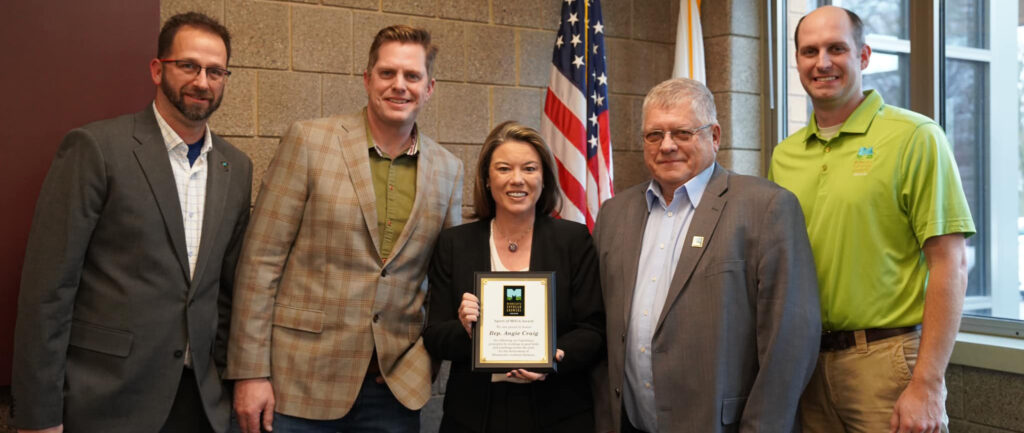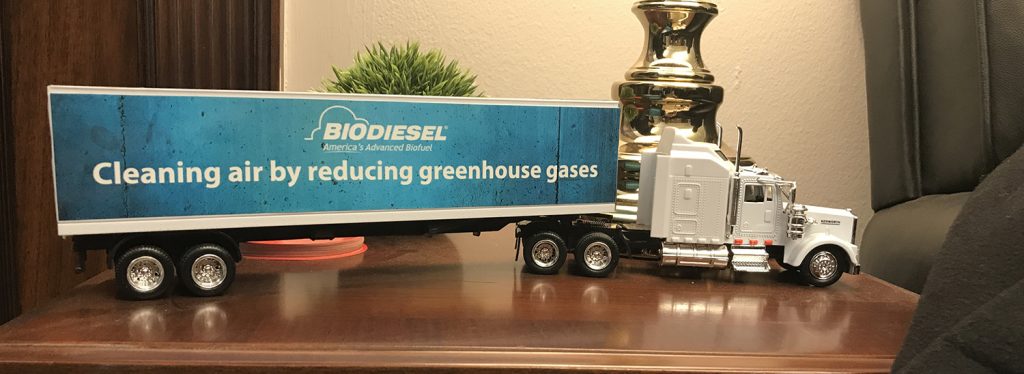The National Biodiesel Board (NBB), along with the American Soybean Association (ASA) and Minnesota Soybean Growers Association (MSGA) thanked Congressional biofuels supporters from both sides of the aisle for introducing a multiyear extension of the biodiesel tax incentive.
If passed, the credit would be extended at $1 per-gallon for five years covering 2018-22, retroactive to Dec. 31, 2017 through Dec. 31, 2022. The biodiesel tax incentive lapsed in December 2017, and the industry has faced nearly two years of uncertainty. ASA has worked closely with NBB to advocate for a multiyear extension of the biodiesel tax credit before the end of 2019.
“Today’s announced deal provides the policy certainty that the biodiesel industry has been seeking to support investments and continued growth of production,” says Kurt Kovarik, NBB’s vice president of federal affairs. “NBB and its members are grateful that Congressional leaders are providing a positive signal before the year’s end. We will continue to work with our champions to get this legislation across the finish line before the end of the year.”
Recognized by the EPA as the first advanced biofuel in the industry, biodiesel supports nearly 60,000 jobs nationwide and more than 5,000 jobs in Minnesota alone, and contributes nearly $1.7 billion toward Minnesota’s economy. Biodiesel is also an environmental winner, reducing greenhouse gas emissions by more than 50 percent.
“Minnesota has been a leader in biodiesel nationwide for nearly 20 years,” says Chris Hill, a director with the Minnesota Soybean Growers Association and board member with the National Biodiesel Foundation. “In order for the biodiesel industry to continue the development of rural communities in Minnesota, it was important for Congress to act fast and we appreciate they stepped up here to introduce this extension.”
Made from an increasingly diverse mix of resources such as recycled cooking oil, soybean oil and animal fats, biodiesel is a renewable, clean-burning diesel replacement that can be used in existing diesel engines without modification. It is the nation’s first domestically produced, commercially available advanced biofuel. NBB is the U.S. trade association representing the entire biodiesel value chain, including producers, feedstock suppliers, and fuel distributors, as well as the U.S. renewable diesel industry.
“Soy growers have faced several obstacles over the past two years—a down farm economy, a trade war, lapsed tax credits and biodiesel plants closing across the country,” said Rob Shaffer, ASA director and chair of the organization’s Biodiesel and Infrastructure Committee, who also serves on NBB. “ASA is grateful to Congress for its support of the tax credit—which will help expand markets for soybean growers during an unsteady time. And I appreciate each of the soy growers and biodiesel industry partners who took time out of their fields to advocate passing this incentive before the end of the year.”






